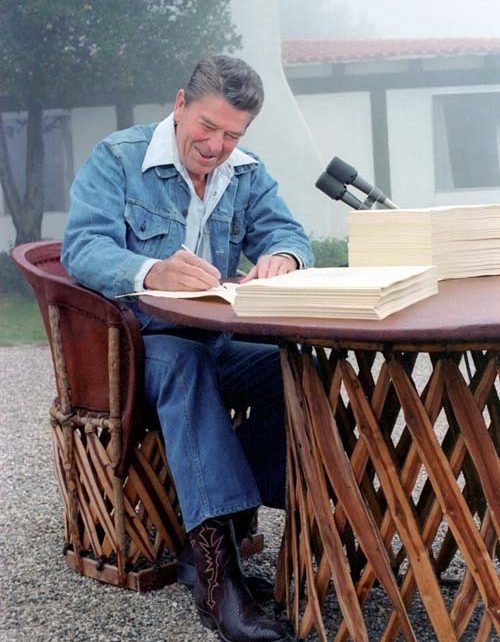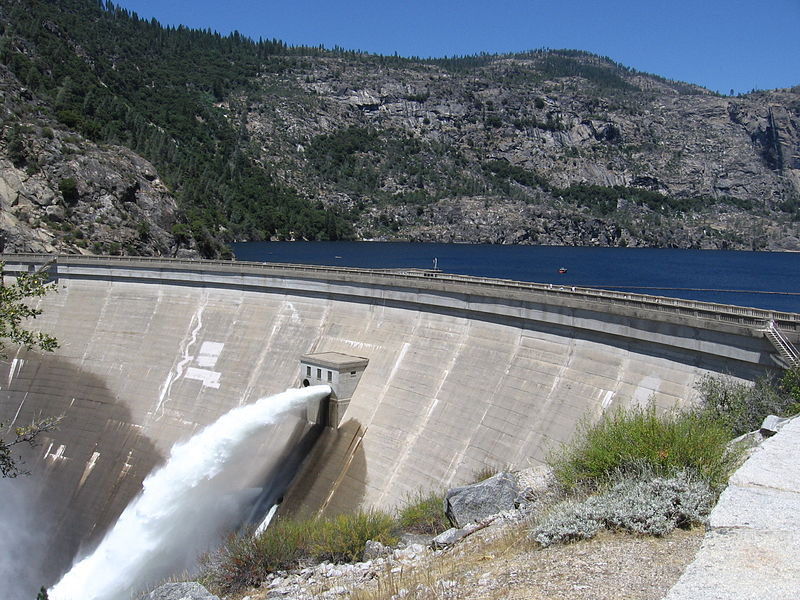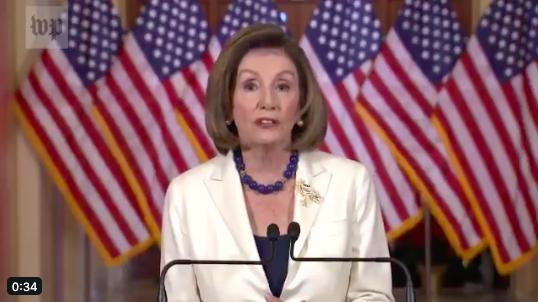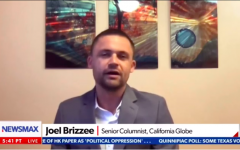
8/13/81 President Reagan signs the 1981 Tax Reconciliation Bill Rancho Del Cielo. (Photo: Reaganlibrary.gov)
America’s ‘Misery Index’ is Déjà vu All Over Again
California has lost its ‘principled politics’ ahead of the rest of the country
By Katy Grimes, August 9, 2021 11:42 am
I am re-reading the 2015 book by Paul Kengor, Ph.D., “11 Principles of a Reagan Conservative.” Kengor is a professor of political science at Grove City College in Pennsylvania, and executive director of The Center for Vision & Values.
Professor Kengor says if you Google “Reagan Conservative,” there are 30 million hits on this one search. So many political candidates claim to be a “Reagan Conservative,” and many want to emulate his political success, but how did he do it? And can it be done again?
Voters who lived through many presidencies have been asking, “What would Reagan do,” when it comes to troubled U.S. politics and policy and the myriad problems facing America. This is why I decided to revisit the book. I followed the Reagan presidency closely, but decided to do a deeper dive to answer this question because following Jimmy Carter’s presidency, Reagan turned around an unstable and uncertain economy, sky high inflation, gas and energy shortages, long gas lines, and high unemployment. “Stagflation” was the word used to describe simultaneous increasing inflation, and the stagnation of economic output during Carter’s term.
How did Reagan do it?
Kengor’s book is a quick read, accurate and insightful. But what also stood out in my re-read was the forward by Edwin Meese, Counselor to President Ronald Reagan (1981-1989), as well as Legal Affairs Secretary and Chief of Staff to Reagan when he was Governor of California (1967-1975). As I read Meese’s forward, I felt as if it was 1979 all over again.
Here is an excerpt:
“When Ronald Reagan was inaugurated as president on January 20, 1981, he was immediately confronted by one of the most daunting combinations of challenges ever faced by a newly elected chief executive. On the domestic scene, the nation was gripped by the worst economic crisis since the Great Depression. Record high inflation and massive unemployment created a “misery index” of unprecedented proportions. An energy shortage and accelerating gasoline prices affected the well-being of families and businesses alike.
In terms of national security, the situation was equally bleak.
In the aftermath of the Vietnam War, our military capability had eroded dramatically and the United States was too often regarded as neither a credible deterrent to our enemies nor a reliable ally to our friends. At the same time, the Soviet Union was adopting a more aggressive posture, endangering smaller governments throughout the world while it continued its cruel oppression of the captive nations “nations behind the “Iron Curtain.” Increasing world tensions and the threat of nuclear war were an ever-present menace.
At home, the dire economic conditions, the deteriorating international situation, and the seeming inability of the federal government to cope with a massive array of problems, had seriously affected the public’s confidence in our nation and its institutions. The outgoing president had even proclaimed that the people were in a “malaise.”
Americans are already experiencing a “malaise,” only 7 months into the Biden administration with growing inflation, high unemployment, spiking crime, and the border crisis where already one million foreigners have crossed into the U.S. illegally. The U.S. has also become “neither a credible deterrent to our enemies nor a reliable ally to our friends.”
This is happening following record low unemployment under President Donald Trump, growing energy independence, a booming economy, a border on the way to being contained and managed, wrapping up seemingly endless wars, successful foreign policy, to “malaise.” The public’s confidence in our nation and its institutions is waning.
California also finds itself experiencing a Déjà vu “malaise,” on top of the Biden administration woes. The state has lost its “principled politics” ahead of the rest of the country, with a recall election next month of Gov. Gavin Newsom, staggering debt and economic crises, $31 billion in EDD unemployment fraud, drought and government-created water shortages, wildfires and poor forest management, an energy crisis and rolling blackouts, an explosion of homeless drug addicts on the streets, while the governor still retains his COVID emergency powers 18 months after he first declared a state of emergency, and is running the state by one-man-rule.
Reagan walked into a difficult situation in 1966 when he was elected Governor of California. At the time, the state faced serious problems including a huge budget deficit, the highest taxes in the nation, a frightening crime rate, exploding welfare costs, and air and water pollution. Reagan won the governorship by championing economic freedom, smaller government, fewer regulations, and lower taxes.
Meese also said in his forward describing Reagan, “The late Dr. J. Rufus Fears, an esteemed historian who has written about leaders throughout the centuries, defined the difference between a politician and a statesman as the latter having four qualities: a bedrock of principles; a moral compass; a vision of where he sought to lead; and the ability to persuade and gain adherents to that vision.”
Professor Paul Kengor explained Reagan’s successes:
“Reagan then enunciated a number of conservative principles: freedom and liberty, free markets, religious freedom, constitutional rights and protections, anti-communism, smaller government, local government, individualism, voluntarism, communities, families, self-reliance, hard work, common sense, reason, faith in God. He called for a just and prudent government that spends money wisely and whose stewards act with integrity and honesty.”
“Reagan articulated a message that ought to resound with conservatives today: “Our task now is not to sell a philosophy, but to make the majority of Americans, who already share that philosophy, see that modern conservatism offers them a political home. We are not a cult, we are members of a majority. Let’s act and talk like it.” (Still today, Americans self-identify as conservative over liberal by a margin of almost two to one. 10) This would require, said Reagan, an adherence to “political principle” and to “principled politics.”
American finds itself eerily back in 1979 when Carter was President with “the seeming inability of the federal government to cope with a massive array of problems,” which has seriously affected the public’s confidence in our nation and its institutions.
Reagan summed up Jimmy Carter’s economic woes while campaigning: “Recession is when your neighbor loses his job. Depression is when you lose yours. And recovery is when Jimmy Carter loses his.” Reagan won the 1980 Presidential Election against incumbent Carter in a landslide with 489 electoral votes to Carter’s 49. He came back in 1984 to win in an even bigger landslide against challenger Walter Mondale, winning 49 of the 50 states, and 525 electoral votes to Mondale’s 13, the most electoral collage votes by any candidate in American history.
California’s Governor and elected leaders, other state’s governors, as well as those elected officials in Washington D.C. need a return to “a bedrock of principles; a moral compass; a vision of where he sought to lead; and the ability to persuade and gain adherents to that vision.”
If we lose freedom here, there is no place to escape to. This is the last stand on Earth. – Ronald Reagan
- Energy Company Warns CARB on ‘The Stark Reality’ Driving In-State Refining Capacity to Zero of CA’s Remaining 7 Refineries - February 28, 2026
- CAL DOGE Investigation: $1 BILLION California Solar Program Instead Funded Democrat Voter Registration & Activism Efforts - February 27, 2026
- Could President Trump End the Income Tax? - February 26, 2026





Oh MY, this is a beautiful piece. So welcome and sorely needed. A “happy tear” welled up and with a big smile, too, as I read through it. Thank you Katy Grimes. There are quotes in here that I think many of us will be pasting on the walls to look at every day for a month or so…. and probably longer. 🙂